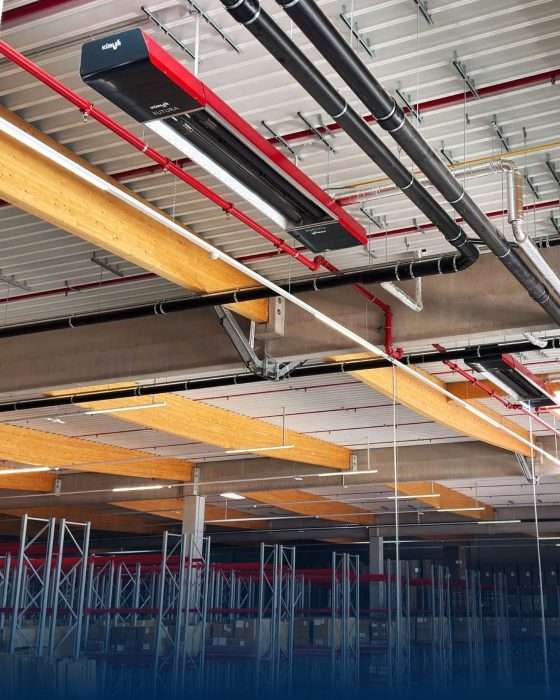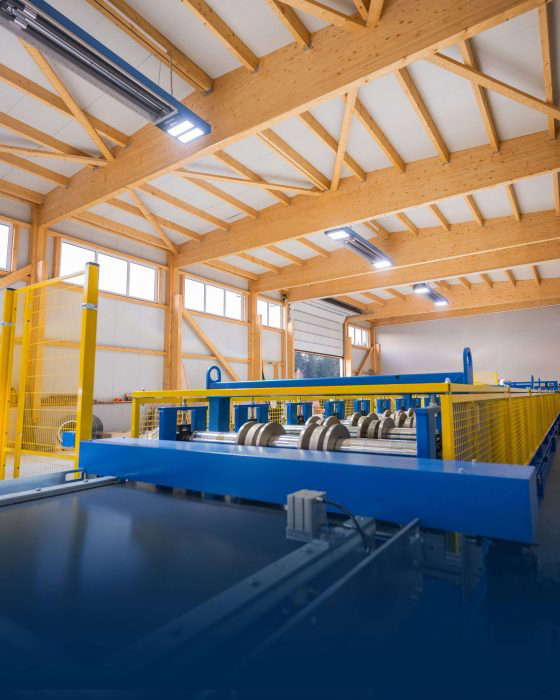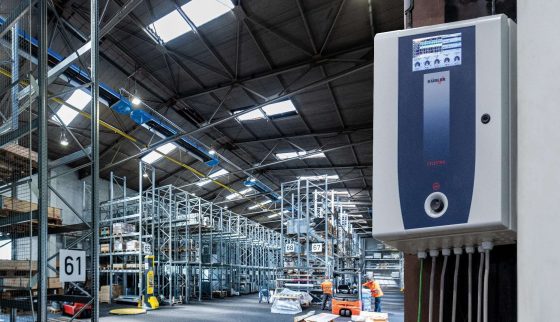The economy speaks ESG and heats multi-energy flexibly.
March 6, 2024

ESG stands for Environmental, Social and Corporate Governance and refers to the three key areas of sustainable corporate management: the environment, social issues and corporate governance. But what does this have to do with you and the way you heat your production halls and warehouses?
The answer is: a lot. Because depending on which technology and which energy source you use for heating, you can have a significant influence on your company's ESG rating.
Ensure positive ratings with the FUTURA multi-energy-capable IR indoor heating system. Recently as "Masterpiece of heating technology" and has already won five awards, this heating innovation makes a significant contribution to the energy transition and plays into your ESG cards in several ways:
- You can reduce CO₂ emissions to zero in a scalable manner. Simply by operating FUTURA with electricity, hydrogen, biogas, or even a mix of all three.
- With FUTURA, you significantly increase energy efficiency. This is because the new technology consumes only 30 to 50 of the previous 100 % of energy. No matter which energy source you use.
- You can also significantly reduce energy consumption by only heating where heat is actually needed. Keyword: "locally and temporally flexible zone heating".
- You can increase sustainability by also using the innovative 2-in-1 system for hall lighting, thereby significantly reducing the amount of cabling and control required.
- Thanks to the even and draught-free heat, they ensure a high level of employee satisfaction and reduce sickness rates at the same time.
These are just five of more big plus points for your ESG rating in the environmental and social areas. You also score points in the area of corporate governance thanks to your compliance with the new GEG requirements, your significant contribution to sustainability and your improved operating result thanks to the considerable savings in heating costs.
Interesting for you? Just give us a call on +49 621 57000-0 or send us an e-mail to kontakt@kuebler-hallenheizungen.de
We look forward to your questions!
Everything you need to know about energy-saving hall heating systems in practice
Saving energy is a big issue - across all sectors. If you want to put an end to inefficient heating systems, our guide is just right for you!
Request a free guide
You might also be interested in
-
The German government is sticking to its goal of climate neutrality by 2045. The GMG is to come into force on 01.07.2026. The EU Buildings Directive (EPBD) will be implemented 1:1, making full use of national leeway. The requirements of the Heating Act (GEG §§ 71-71p) will be deleted. The obligation to operate new heating systems with at least 65 % renewable energy will no longer apply to new and existing buildings. Technology openness: Owners [...]
-
Germany has a huge number of buildings whose heating systems waste energy every day and produce far too much CO₂. With regard to the use of renewable energies and modern technologies, it is by no means just an old stock that urgently needs to be refurbished. Many newly built halls are also equipped with outdated [...]
-
Mr. Kübler, your company produces heating systems for halls. These only make up a small proportion of all buildings in Germany. Why is it nevertheless important to save as much energy as possible in this area? That's right, halls only make up around 1.5 percent of all buildings in Germany, so most people don't notice them. Even [...]
-
Christmas is once again approaching surprisingly quickly - and, unfortunately, one or two challenges are on the horizon. From 3G and 2G plus to the next increases in energy prices. Congratulations if you have already converted your hall heating to an economical system from KÜBLER. This is a really good decision in many respects.





